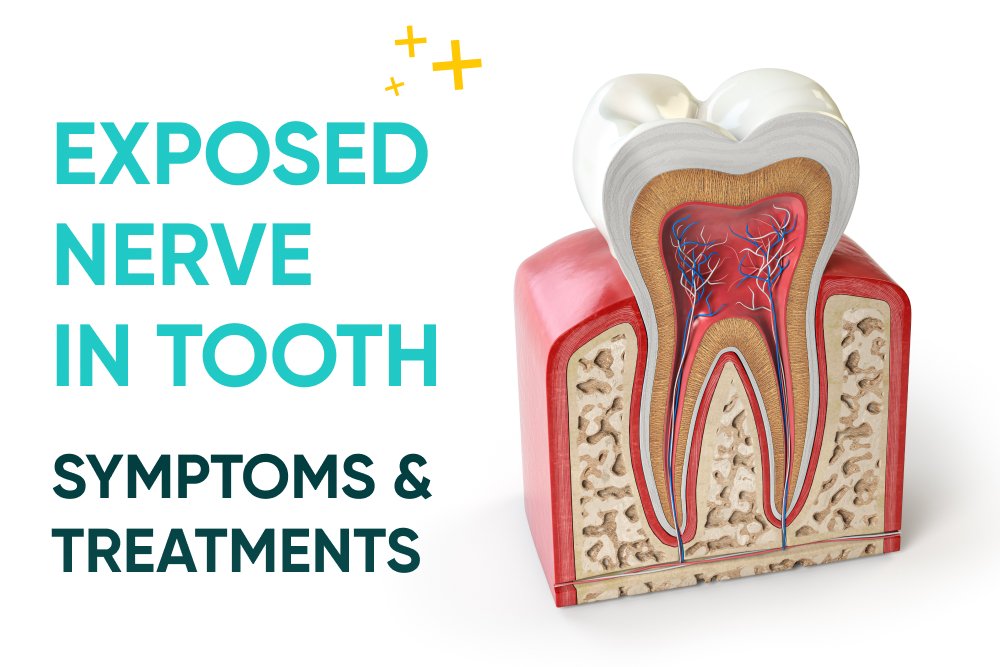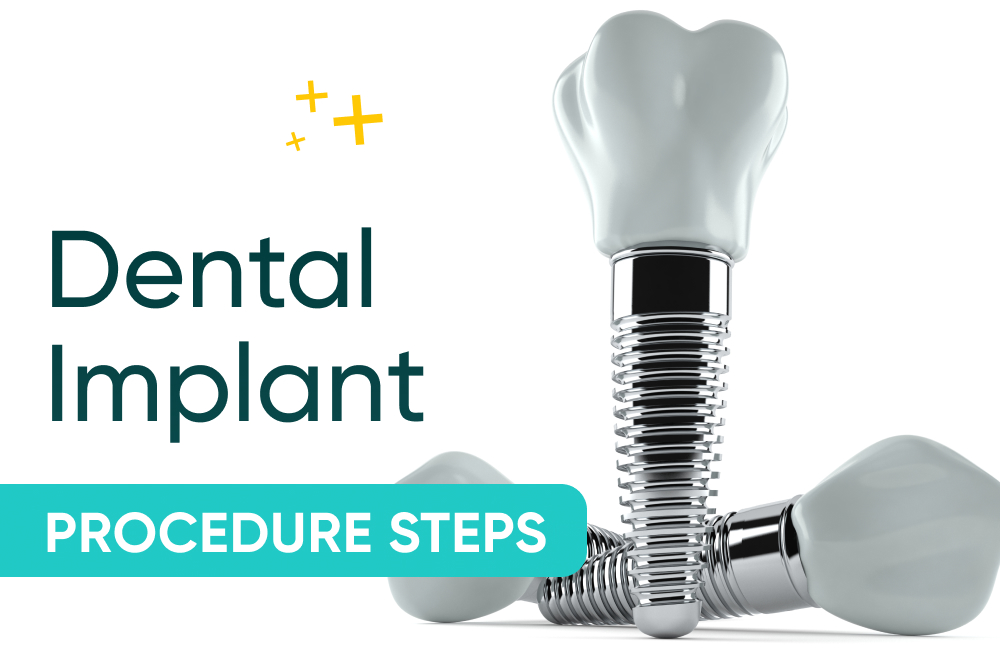In this blog post, we will explore the causes, symptoms, and treatment options for an exposed nerve in a tooth. By understanding these aspects, you can take the necessary steps to alleviate the pain and restore your dental health.
Understanding your tooth structure
- Intense toothache. One of the primary symptoms of an exposed nerve is a severe and persistent toothache. The pain may be sharp, throbbing, or shooting in nature, making it difficult to ignore.
- Sensitivity to temperature. If your tooth becomes extremely sensitive to hot or cold temperatures, it could be a sign of nerve exposure. Consuming hot or cold foods and beverages may trigger this intense discomfort or even sharp, shooting pain.
- Painful chewing. Another common symptom is experiencing pain while biting down or chewing food. This discomfort can range from mild to excruciating and may significantly impact your ability to eat comfortably.
- Swelling and redness. Inflammation is often observed when there’s an exposed nerve in a broken tooth. You might notice swelling in the gum tissue surrounding the tooth, accompanied by redness or tenderness.
-
- Throbbing sensation. With a nerve in the tooth exposed, you will feel a throbbing sensation. This pulsating feeling can worsen the already intense toothache, making it challenging to find relief.
-
- Bad taste or odor. In some cases, an exposed nerve can result in a foul taste or odor emanating from the affected tooth. This unpleasant taste or smell may persist despite maintaining good oral hygiene practices.
Causes of Nerve Exposure
- Tooth decay. Untreated cavities are one of the leading causes of nerve exposure. When tooth decay progresses, it erodes the protective layers of the tooth, including the enamel and dentin. As the decay reaches deeper into the tooth, it can eventually expose the sensitive nerves within the pulp.
- Gum disease. Periodontal disease, or gum disease, affects both your gums and supporting structures around your teeth. As gum disease advances, it can cause gum recession where the gum tissue pulls away from the tooth surface. This exposes not only the root but also leaves nerves vulnerable to external stimuli.
- Trauma or injury. Accidents involving a sudden impact on your mouth, say a bad fall, can cause physical damage to your teeth. A crack or chip in a tooth may result in nerve exposure if left untreated.
- Fractured fillings. Dental fillings may deteriorate or become damaged due to wear and tear or improper dental care. When a filling fractures or breaks off, it exposes nerves within your tooth, leading to pain and sensitivity.
If you suspect an exposed nerve, it’s essential to visit a dental professional like NoHo Family Dental for a proper diagnosis. During your appointment, your dentist will perform a comprehensive examination to identify if an exposed nerve is present.
Over-the-Counter Remedies for Immediate Relief
Here are some OTC medications that can help soothe your toothache:
- Painkillers. Nonsteroidal anti-inflammatory drugs (NSAIDs) such as ibuprofen or acetaminophen can help alleviate tooth pain. Follow the instructions on the packaging and consult with your dentist accordingly.
- Topical anesthetics. Over-the-counter numbing gels containing benzocaine or other similar active ingredients can provide temporary relief by numbing the affected area. Apply a small amount directly to your tooth or gums while following the product instructions.
- Oral analgesics. Some over-the-counter oral analgesics specifically formulated for dental pain relief may contain ingredients like benzocaine or lidocaine. These products come in various forms such as gels, liquids, or dissolvable strips that you can place directly on the affected tooth or gum area.
- Desensitizing toothpaste. There are desensitizing toothpaste products available over the counter that can help alleviate your tooth sensitivity. This toothpaste contains ingredients like potassium nitrate or strontium chloride, which help block sensations transmitted by nerves.
Dentist-recommended home remedies
Knowing how to fix an exposed nerve in a tooth need more than just over-the-counter solutions. But if you can’t go to the drugstore, these home remedies for exposed nerve in a tooth can also offer relief:
- Saltwater rinse. Mix a teaspoon of salt with warm water and swish it around your mouth to reduce inflammation.
- Clove oil. Apply a small amount of clove oil to the affected tooth using a cotton ball for its natural numbing properties.
- Cold compress. Place an ice pack or cold compress on your cheek to numb the area and reduce swelling.
- Peppermint tea bags. Place damp, cooled peppermint tea bags on the affected area for several minutes. Peppermint has soothing properties that can help alleviate pain and reduce inflammation.
- Garlic. Crush a garlic clove to release its natural oils. After that, apply it directly to the affected tooth or gum area for temporary relief from toothache pain.
- Hydrogen peroxide mouthwash. Dilute equal parts of hydrogen peroxide and water to use as a mouthwash after brushing your teeth. This mixture can help kill bacteria and reduce inflammation in the oral cavity.
Seek professional treatment options
When it comes to treating an exposed nerve in a tooth, professional intervention is the best option. Your dentist may recommend one or more of the following treatment options, depending on your tooth’s condition:
- Dental filling or crown. If tooth decay caused the exposed nerve, a filling or crown would be the solution. This involves removing decayed portions and restoring the tooth with a filling or crown.
- Root canal therapy. In more severe cases, where the nerve is infected, root canal therapy may be required. This is to remove the nerve and seal off the tooth to prevent further infections. If you want to know how to cover exposed nerve in a tooth, you should consult your dentist about root canal treatments.
- Extraction. If the damage is extensive and irreversible, extraction of the affected tooth may be necessary. This is the best way on how to make exposed nerve in a tooth stop hurting. However, you may need a bridge or implant to close the tooth gap.
Tips to prevent exposed nerves in a tooth
While you can always use home remedies for killing exposed nerves in a tooth, prevention is always the best cure. Preventing exposed nerves in teeth is crucial for maintaining oral health and avoiding pain. Here are some tips to help prevent exposed nerves in teeth:
- Maintain good oral hygiene. Brush your teeth at least twice a day using fluoride toothpaste and a soft-bristled toothbrush. Additionally, floss daily to remove plaque and debris from between teeth and along the gum line.
- Visit your dentist regularly. Schedule regular dental check-ups and cleanings to identify any early signs of tooth decay or damage. Your dentist can detect issues before they progress to the point of nerve exposure.
- Avoid excessive force when eating or biting. Be mindful of how you bite into hard objects like ice, popcorn kernels, or hard candies. These food items can cause cracks or fractures in your teeth that may expose the nerves.
- Limit acidic foods and drinks. Acidic food can weaken tooth enamel over time, making it more susceptible to decay and nerve exposure.
- Quit smoking. Smoking not only stains teeth but also increases the risk of gum disease and tooth decay, which can contribute to nerve exposure.
- Address dental issues promptly. If you notice any signs of tooth decay, gum recession, or sensitivity, seek dental treatment as soon as possible. This is to prevent further damage that could expose the nerves.
Conclusion
Experiencing an exposed nerve in a tooth can be excruciating. Still, understanding its symptoms and treatment options can help you find relief and get back to enjoying life pain-free.
Remember, early diagnosis and professional intervention are key to preventing further complications. By maintaining good dental hygiene practices, you can reduce the risk of future problems and keep your smile radiant and healthy.




